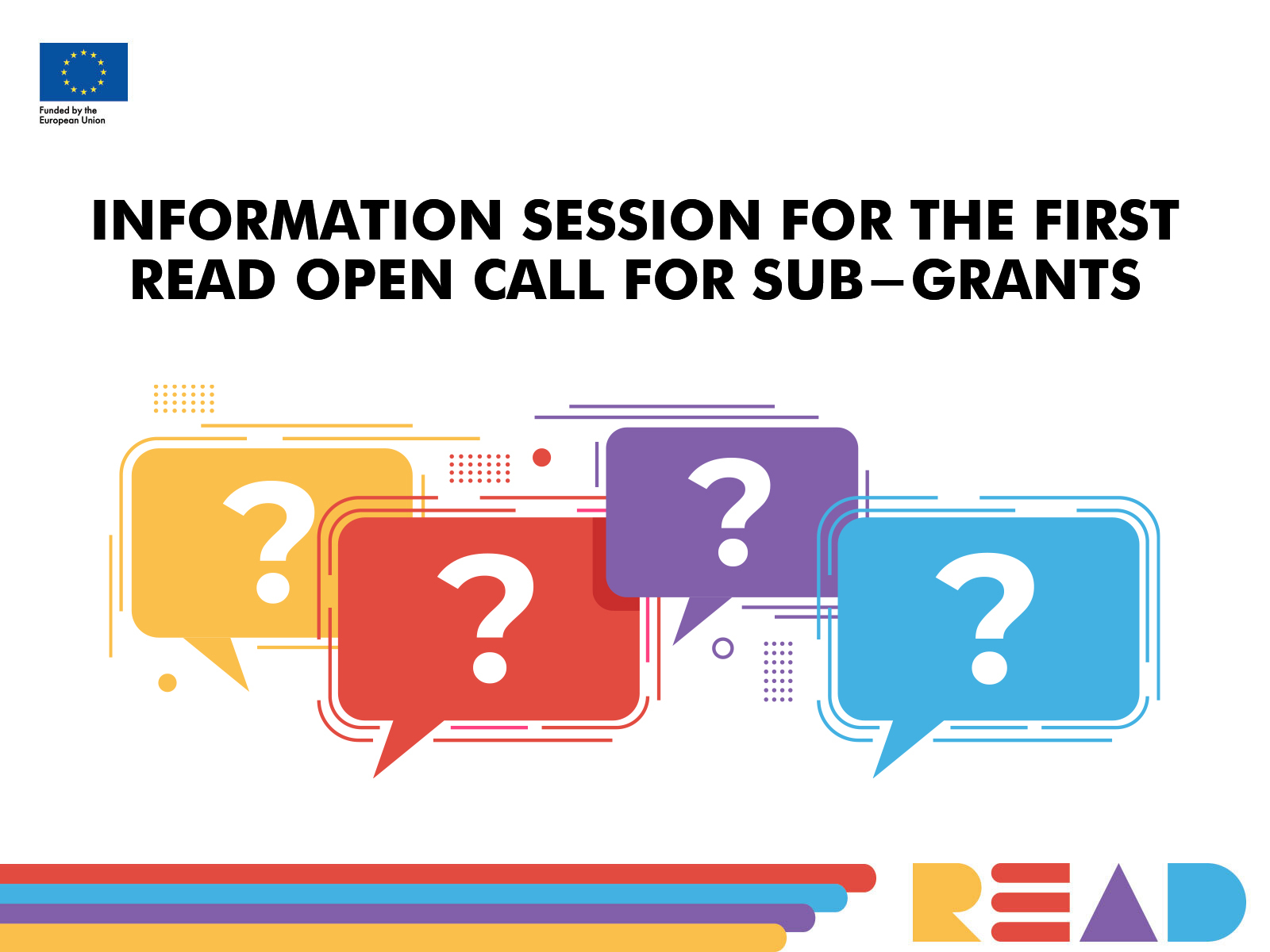
22 Jan Questions and Answers from the read Information Session on 12.01.2021
- Is it possible for one organization to apply for both sub-grants?
Yes, it is possible for one organization to apply for both open calls, but it can be awarded with just one sub-grant per call.
- How/where should they mark for which call they are applying?
In the Goethe Application Portal there is a section Type of funding where the different open calls are specified.

- What literature should be translated, what are the criteria for the selection process of literature?
Projects have to comply with the following requirements concerning the original literary works (as a source):
- Works in paper, or digital format (e-books) and audiobooks are both eligible;
- The works to be translated and promoted must be works of fiction with a high literary value, irrespective of their literary genre, such as novels, short stories, plays, poetry, comic books and children’s fiction
- The works must be written by authors who are nationals of, or residents in an eligible country
- The works must have been previously published
- The works must not have been previously translated into the target language, unless the previous translation was only partial (electronic copy of books proposed for translation has to be provided, if an electronic copy is not available when requested, an electronic scanned copy of the covers and the first and last 5 pages of books can be accepted).
- Do we have to have a Partner organization, for ex. in Serbia – if we translate the work from Serbian to Macedonian language?
-for the multilingual open call there is no need for having Partner organization – the applicant has to choose the author that will be translated. The work, the subject of the translation, should be from a different eligible country. In the phase of application, the applicant should already know which work will be translated.
-for intercultural open call, the applicants who will have Partners organization will have priority in the assessment process.
- Do we have to apply individually with an already signed contract with the author, or we should have a Partner organization?
For the multilingual open call the applicant should choose the work that it will be translated in advance and preferably start negotiations with the author for buying property rights.
- Can you please let us know whether National Libraries could apply for multilingual projects?
No, only CSOs from the targeted countries are eligible for this Call.
- Is this project only about literature? Can we, for example, apply with ideas in the fields of theatre, music, plastic arts or something else?
Yes, for intercultural open call, the proposed projects can include literary arts and artists, or variety of other cultural and artistic initiatives including music, theatre, audio and video production, multimedia and so forth.
- How does the Kalem Association provide an exemption?
The Partner Organizations can help with the process of VAT exemption for the sub-grantees. But the sub-grantees should submit the documentation to the prospective Institution for VAT exemption after signing the sub-grant Agreement.
- I guess the total budget is 2.000 euro for one project and 3.000 euros for the other one?
For the intercultural open call, the granted amount is up to 3.000 euro and for the multilingual open call the granted amount is 2.000 euro.
- Is it necessary to have a partner in the project?
For multilingual projects the applicant are expected to translate works from authors coming from eligible countries other than the country of the applicant, and for intercultural projects it is not necessary to have a Partner organization, but the applicants who have a Partner organization it will be given priority.
- As far as I understood, this is an ongoing project? I mean, we will be the part of this ongoing project, right!
Yes. Becoming sub-grantees the applicant will have a chance for cross-regional cooperation, to have synergies with READ mobile library, residencies and literature festivals , be a part of READ network across the region and also take part in READ capacity building workshops


